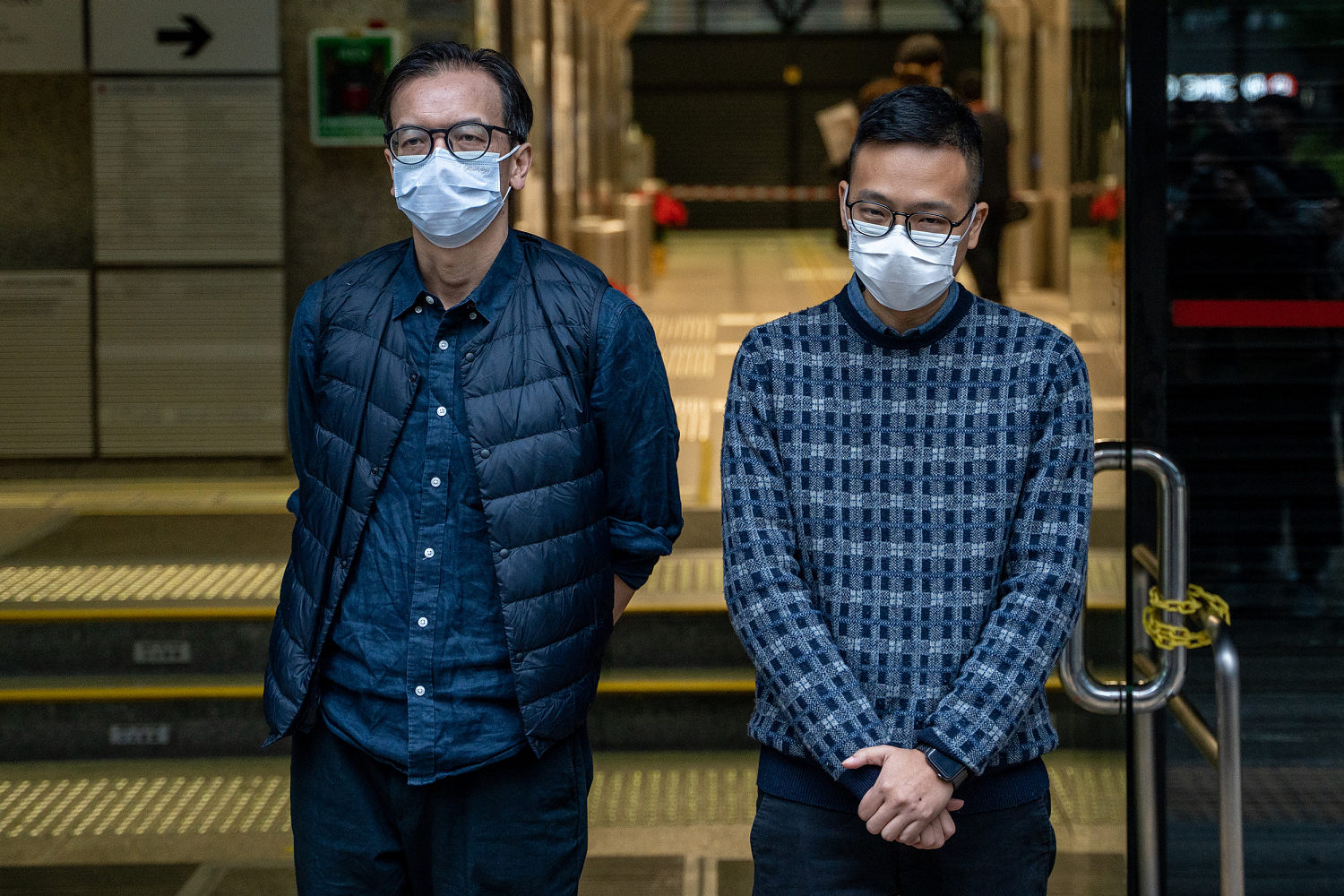Verdict expected in sedition trial of two Hong Kong journalists

HONG KONG — A verdict is expected in Hong Kong on Thursday in a sedition case against two journalists who led a defunct pro-democracy newspaper, in a trial widely viewed as a test of press freedom in the Chinese territory.
Chung Pui-kuen, the former editor-in-chief of Stand News, and Patrick Lam, the newspaper’s former acting editor-in-chief, have both pleaded not guilty to conspiracy to publish seditious materials under a law dating to Hong Kong’s time as a British colony.
Hong Kong authorities have resurrected the sedition law as part of a broad crackdown on dissent following mass antigovernment protests that roiled the city for months in 2019. But this was the first time it had been used against media since 1997, when Hong Kong returned to Chinese rule on the condition that civil liberties such as press freedom be preserved for 50 years.
The verdict, which comes almost two years after the trial began in October 2022, had already been postponed multiple times. Chung and Lam face up to two years in prison and a fine of 5,000 Hong Kong dollars (about $640).
Read more NBC News coverage of Hong Kong
Stand News itself has been shut down since December 2021, when its office was raided by national security police and its assets were frozen. Chung, Lam and five others were arrested the same day, though only Chung and Lam were later charged in connection with the Stand News case. The newspaper’s parent company, Best Pencil (Hong Kong) Ltd., was also charged but was not represented in the trial.
The arrests and closure were criticized at the time by Western officials including Secretary of State Antony Blinken, who said, “Journalism is not sedition.”
Stand News and other pro-democracy news outlets had been under pressure since June 2020, when Beijing imposed a sweeping national security law in response to the protests the year before. Though officials argue that the law was necessary to restore stability, critics say the law as well as local national security legislation enacted in March are being used to suppress dissent.
Many of Hong Kong’s most prominent pro-democracy figures have been arrested under the national security law, while others have resigned from politics or moved abroad. Dozens of civil society groups have also shut down, citing the uncertain environment.
The raid on Stand News followed the forced closure in June 2021 of Apple Daily, a popular pro-democracy newspaper whose founder, Jimmy Lai, 76, is facing national security charges that could see him imprisoned for life. Another pro-democracy news outlet, Citizen News, cited the closure of Stand News when it shut down shortly afterward.
The decline of press freedom in Hong Kong is reflected in Reporters Without Borders’ annual World Press Freedom Index, where it ranked 135th out of 180 countries and territories this year compared with 70th in 2018.
In an annual press freedom survey released by the Hong Kong Journalists Association last week, media workers gave the city a score of 25 out of 100, the lowest since the survey was first conducted in 2013. They were especially concerned about the impact of the new local national security legislation, known as Article 23, which has been criticized as vaguely worded.
The Hong Kong government says freedom of the press and freedom of speech remain protected under the city’s mini-constitution and Bill of Rights but “are not absolute.”
Stand News, which was founded in 2014, gained recognition in 2019 for its livestreamed coverage of the protests. Though the paper’s coverage was criticized by government officials, Hong Kong residents rated it among the city’s most credible news outlets in 2019, according to a survey by researchers at the Chinese University of Hong Kong.
Prosecutors based their case against Stand News on 17 articles published from July 2020 to December 2021 that they described as seditious, which is defined as inciting hatred or contempt against the Chinese central government, the Hong Kong government or the judiciary.
They included opinion pieces criticizing the national security law, interviews with former pro-democracy lawmakers now living in self-exile with bounties on their heads, and profiles of three pro-democracy candidates who are now waiting to be sentenced in a national security case.
Lawyers for Chung and Lam argued that they were legitimate journalists reporting on issues that were also being covered by other Hong Kong news media.





